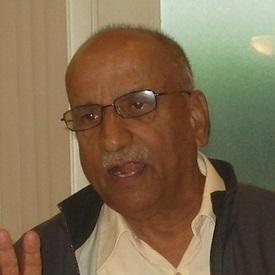Urbanization of Everybody and Social Sustainability
This paper focuses on the ushering of the urban habitat in a spatial-ecological rubric as urbanization envelops the majority of Pakistanis. By the census definition, 36% of the population lives in cities, towns and other designated urban places. But by applying the population density of 400 persons per sq. km. as the defining criterion – a near universal standard - large rural regions of Pakistan qualify as urban areas. This unorganized form of urbanization resulting from the implosion of population, joined with the growth of cities and towns, has produced mega-urban regions where the countryside is dotted with villages, suburbs, homesteads and factories, centred around cities and towns, the merger of ruralopolis with megalopolis. This landscape and habitat contains about 56% of Pakistan’s population. India, Bangladesh, Java, Indonesia and Southern China are other mega-urban regions growing with the population pressure in rural areas.
The ecological impacts of urbanization bring about a change in the landscape and settlement pattern, usually resulting in sprawled development across the countryside. It results in the loss of agricultural land, deforestation, disappearance of wildlife and depletion of water resources. It precipitates thresholds for infrastructure, facilities and public services. The needs are urgent but their neglect lowers the quality of life and breeds urban crises. These impacts mutually reinforce each other to produce a symbiotic environment of underserved urbanization.
The ecological impacts affect social, economic and political institutions. They call for technological and institutional responses. This is the basis of urban problems in Pakistan that now extend to almost the whole country. To respond to these challenges five institutional imperatives of urbanization have to be met. Those are: (1) The establishment of participatory and responsive local governments to maintain order, guide development, provide services and conserve the environment; (2) Instituting urban land reforms, defining respective private and public rights in the use, valuation, servicing and control of land for urban purposes; (3) Implementing a system of producing, distributing, maintaining and managing collective goods in the form of utilities, facilities, services and regulations; (4) Reconstruction of social institutions and the promotion of urban moral order; and, (5) Organizing a professional, accountable, transparent and ethical public administration.



